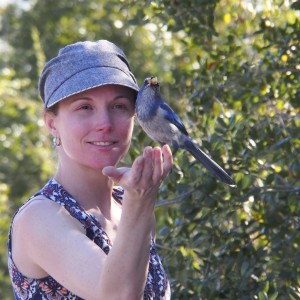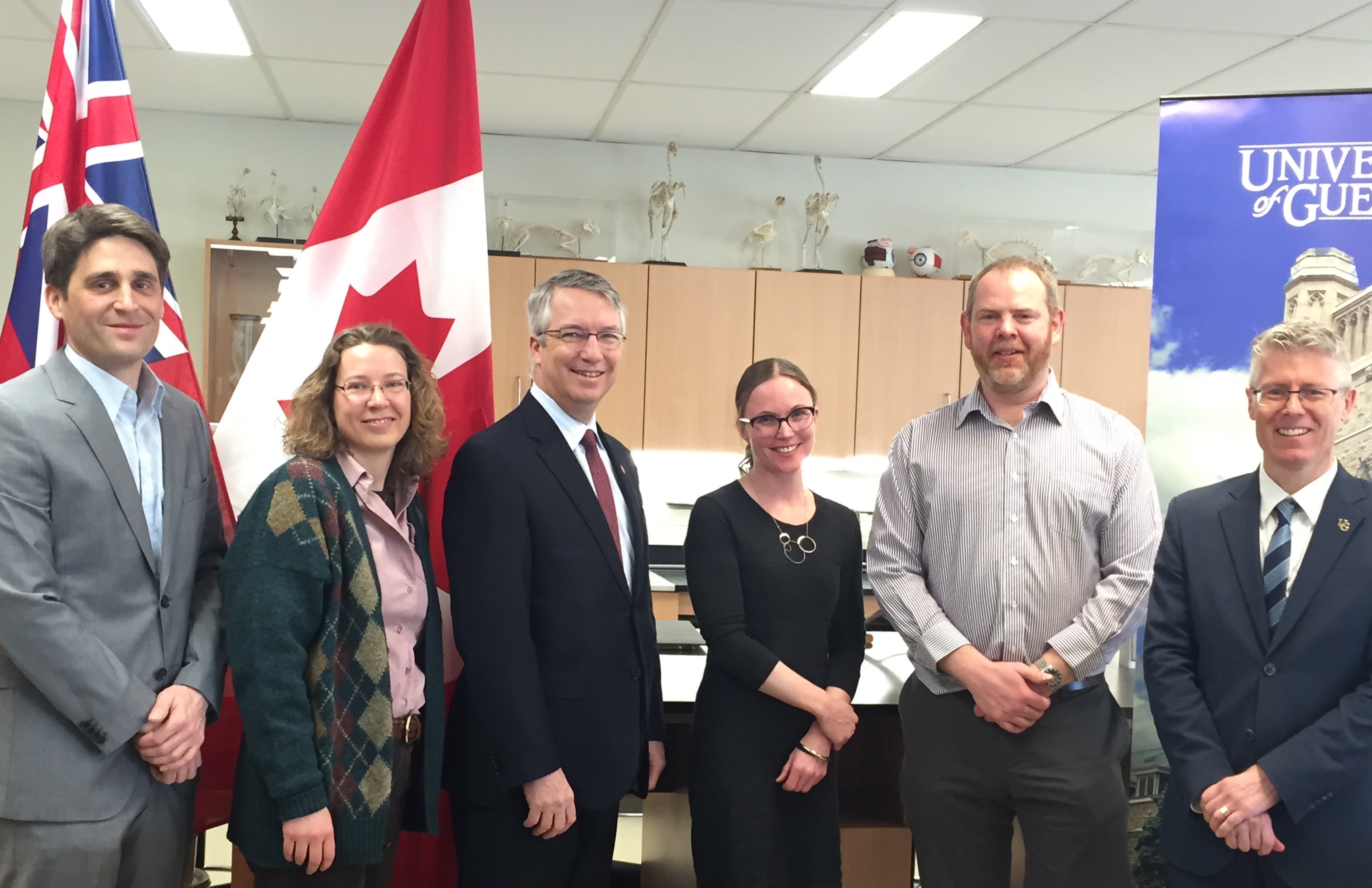
University of Guelph researchers developing innovative ways to do everything from tracking pollinators to studying animals and humans to genetically modifying crops received nearly $600,000 in federal support today.
The Canada Foundation for Innovation (CFI) will fund six U of G research projects through the John R. Evans Leaders Fund (JELF). Lloyd Longfield, MP for Guelph, made the announcement on campus today on behalf of Kirsty Duncan, federal minister of science.
“The JELF enables institutions such as the University of Guelph to remain internationally competitive in areas of research and technology development aligned with their strategic priorities,” Longfield said.
“The researchers and their work highlight the range of contributions and show again the University of Guelph’s commitment to improving life.”
In total, CFI will contribute more than $50 million for 223 research projects at 39 universities across Canada. JELF was created to help universities attract and retain leading faculty and researchers.
“With this CFI support, our leading researchers will have the tools they need to push past the frontiers of their disciplines, create the inventions of tomorrow, and train the next generation of knowledge generators and critical thinkers,” said Malcolm Campbell, vice-president (research). “Together they will create conditions to improve life.”
Speaking at the event, Prof. Amy Newman, Department of Integrative Biology, explained how she will use her $105,965 grant to study the effects of early-life stress on animals’ physiology, behaviour and fitness.

“My team and I look forward to linking important events across an animal’s lifetime to understand the lasting impacts of stress in the environment,” she said, adding that these studies may help in understanding the impacts of early-life stress on humans.
Newman said the grant will support her team’s custom NEST (Natal Environment Surveillance Technology) system and encourage citizen science involvement across Ontario and Canada.
Improving treatments for osteoarthritis (OA) is the goal of a project led by Prof. Andrea Clark, who recently joined the Department of Human Health and Nutritional Sciences (HHNS).
No treatment exists to stop or reverse this chronic joint condition, which affects millions of Canadians. Clark hopes to point the way to drugs to slow or halt OA, and to create new and better joint tissues for implantation.
New equipment purchased with CFI funding of $105,965 will help in learning more about molecular mechanisms involved in osteoarthritis.
“Students in my research program will be trained to use this equipment and leave with transferable skills that are valued in the marketplace,” she said.
Other JELF recipients at U of G are the following:
- Jamie Burr, HHNS, $102,940 for a human cardiovascular physiology laboratory to study the effects of exercise;
- Peter Pauls, Department of Plant Agriculture, $102,389 for innovations in crop genetics and breeding to improve productivity, disease resistance and sustainability;
- Nigel Raine, School of Environmental Sciences, $105,001 to create a radio-tracking network to monitor pollinator movements across landscapes; and
- Stefan Keller, Department of Pathobiology, $74,135 for profiling adaptive immune responses in animals.
